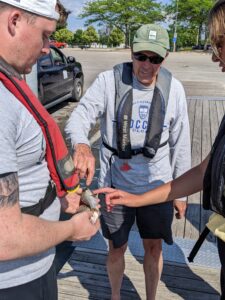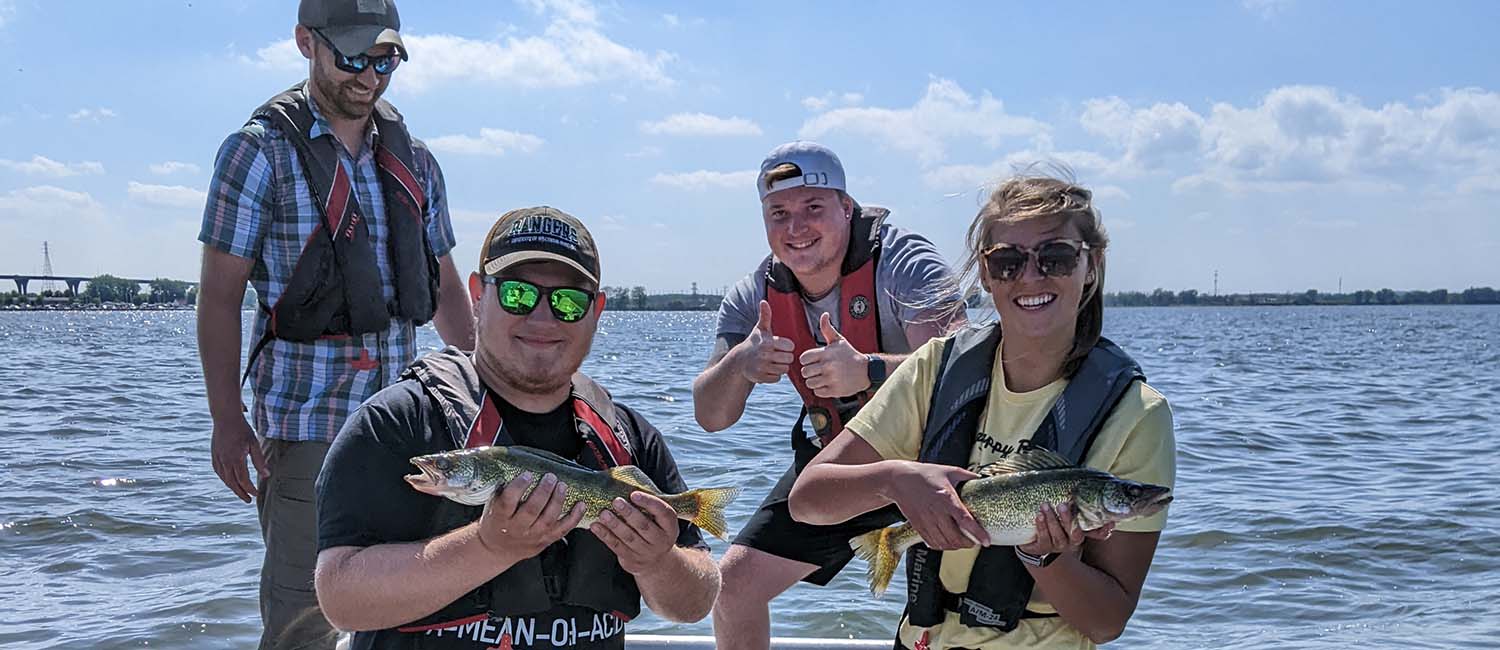Not many undergraduate students can say they’ve helped to design a university level course. Max Stafford at UW-Green Bay, Antoni Haupt at UW-Milwaukee and Jonathan Cochrane at UW-Parkside had the unique experience of participating in the pilot course “Human Interactions with Lake Michigan Coastal Ecosystems.”
They provided feedback and insight to John Janssen and Liz Sutton at UW-Milwaukee, Chris Houghton at UW-Green Bay and Julie Kinzelman at UW-Parkside, who developed the course using funding from the Freshwater Collaborative of Wisconsin.
“Great Lakes ecosystems are unique among freshwater systems due to their large size and depth,” Janssen says. “They support diverse industries and often large populations, and they see adverse impacts due to wastewater, including sewage and runoff from urban and agricultural areas.”
The highly immersive course will be offered May 28–June 24, 2024, to sophomores and juniors enrolled at any UW System school through an application process. To keep the course affordable, lodging and food costs will be covered by a second Freshwater Collaborative grant.
Haupt, who is originally from Minnetonka, Minn., and is enrolled in the accelerated master’s degree program at UW-Milwaukee’s School of Freshwater Sciences, says one of the benefits of the course was getting to see new areas of Wisconsin and working with professors from other universities.
“I ideally want to go into habitat remediation, and this course definitely helped me prepare for this,” she says.
Students accepted into the summer 2024 course will explore habitats along the coast of Lake Michigan from Green Bay, Peshtigo, Manitowoc and Sheboygan to the more urban areas of Milwaukee, Racine and Kenosha. They will learn basic sampling techniques and technologies to study the human impacts on the coastal ecosystem. Weeks one and four of the course will take place online with pre-reading, discussions, and a final project.

The second and third weeks involve travel along the Lake Michigan coast and nearshore to see firsthand the impacts of human activities, including commercial fishing, industrial pollution, dredging, urbanization as well as harbor management and coastal restoration. Students will explore areas such as the eutrophic Duck Creek Delta, Peshtigo wetlands, the Fox River plume, the Wisconsin Shipwreck Coast National Marine Sanctuary, small coastal streams near Kingfisher Farm, the Milwaukee Estuary Area of Concern, and the Kenosha Dunes.
In addition to being taught by faculty from three universities, students will learn from water professionals from NEW Water, NOAA, and Riveredge Nature Center’s sturgeon rearing facility. They will also create a project that educates the community about human-environmental interactions involving Lake Michigan — a key part of the course that will help raise awareness of some of Wisconsin’s water challenges.
Originally from Milon, Mich., Stafford has spent many summers boating and was aware of some of the issues affecting Lake Michigan, but he says seeing the effects of erosion and the success or failure of restoration projects was eye-opening.
“I would highly recommend this course,” he says. “It will help you understand not just yourself and your major, but also what’s going on around you. It was a unique perspective and look at Lake Michigan. And it opens your eyes to possibilities for future careers and gives you tools and experience for down the line.”
COURSE INFORMATION
Course: Human Interactions with Lake Michigan Coastal Ecosystems
Dates: May 28–June 22, 2024
Student Eligibility: Open to sophomores and juniors enrolled at any Universities of Wisconsin school.
Admissions Process:
Students interested in this course must apply by March 31 and will be notified of their permission to enroll by April 15. Spaces are limited. This course is open to all University of Wisconsin students. Students not enrolled at UW-Milwaukee must enroll as a guest student upon acceptance to the course. Lodging and meals will be provided through a grant from the Freshwater Collaborative.
Course Details and Application
